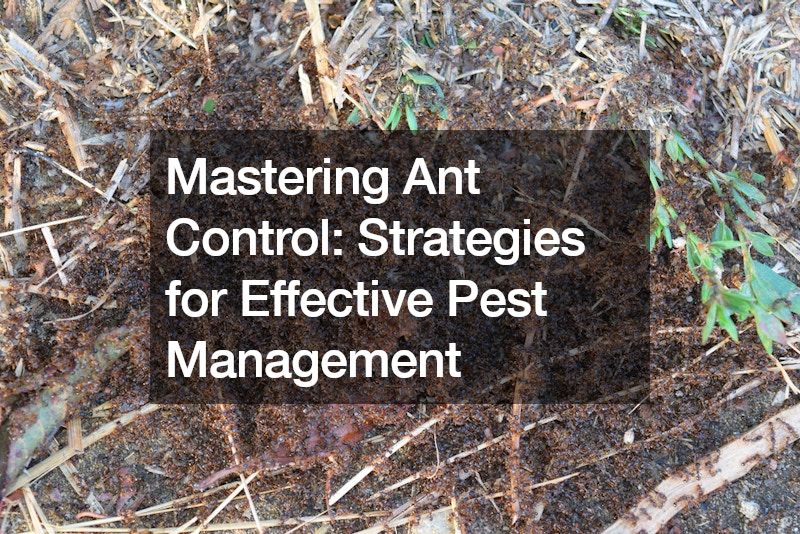
In the intricate dance between humans and nature, few pests prove as persistent and vexing as ants. These tiny invaders can disrupt the tranquility of homes and businesses, marching relentlessly in search of food and shelter. Yet, with the right strategies and knowledge, mastering ant control is within reach, ensuring peace of mind and a pest-free environment.
Understanding the behavior and biology of ants is paramount to successful ant control.
As Michael Piacenza from Advantage Pest Control suggests, ants typically seek out either sugars or proteins for sustenance. By identifying their feeding preferences, homeowners can strategically deploy bait to lure and eliminate ant colonies. This method targets not just the visible workers but also the hidden queen and larvae, effectively eradicating the entire nest over time.
Baiting presents a sustainable and long-term solution to ant infestations, disrupting their reproductive cycle and preventing future incursions. However, for those seeking more immediate results, supplemental measures can be employed. Pesticides, such as dust or sprays, can be strategically applied along ant trails and entry points to swiftly eliminate visible ants. These products serve as a temporary solution, complementing the broader strategy of baiting for comprehensive ant control.
It is crucial to exercise caution when using pesticides indoors, particularly in areas frequented by pets and children. Opting for safe and environmentally friendly products minimizes risks while effectively targeting ant populations. Additionally, avoiding repellent-based pesticides prevents ants from circumventing bait stations and potentially forming new colonies, exacerbating the problem.
When implementing ant control measures, attention to detail is key. Ants are adept at exploiting even the tiniest cracks and crevices to gain entry into homes and businesses. Inspecting and sealing potential entry points, such as gaps around windows and doors, helps fortify defenses against ant incursions. Similarly, maintaining cleanliness and promptly addressing spills and food crumbs deprives ants of their primary food source, reducing the allure of infestation.
The kitchen, with its abundance of food and moisture, is a hotspot for ant activity. Ants are often found trailing along countertops, beneath sinks, and along baseboards in search of crumbs and spills. Targeting these areas with bait and judicious pesticide application disrupts ant foraging patterns and deters future incursions. Regular cleaning and proper food storage further discourage ant activity, creating an inhospitable environment for these persistent pests.
Beyond the confines of individual homes, effective ant control requires a collaborative effort within communities and neighborhoods. Shared spaces such as parks, playgrounds, and communal gardens can serve as breeding grounds for ant colonies, necessitating coordinated pest management efforts. Community education initiatives, led by local pest control professionals and authorities, raise awareness about ant control best practices and encourage proactive measures to prevent infestations.
In agricultural settings, ants can pose a threat to crops and livestock, impacting yields and profitability. Integrated pest management (IPM) strategies, which combine biological, cultural, and chemical controls, offer a holistic approach to ant management in farming environments. Utilizing natural predators, implementing crop rotation practices, and judiciously applying pesticides help mitigate ant-related losses while minimizing environmental impact.
Amidst the myriad challenges posed by ant infestations, technological advancements offer innovative solutions for ant control. Smart pest control devices equipped with sensors and artificial intelligence algorithms can detect and monitor ant activity in real-time, enabling timely intervention and precise targeting of pest populations. These tools empower homeowners and pest control professionals alike to effectively manage ant infestations with greater efficiency and accuracy.
In the relentless battle against ants, knowledge is our most potent weapon. By understanding their behavior, employing strategic control measures, and embracing innovation, we can reclaim our homes, businesses, and agricultural landscapes from the clutches of these persistent pests. With a concerted effort and a commitment to sustainable pest management practices, we can achieve long-term success in controlling ants and preserving the sanctity of our living spaces.
.
